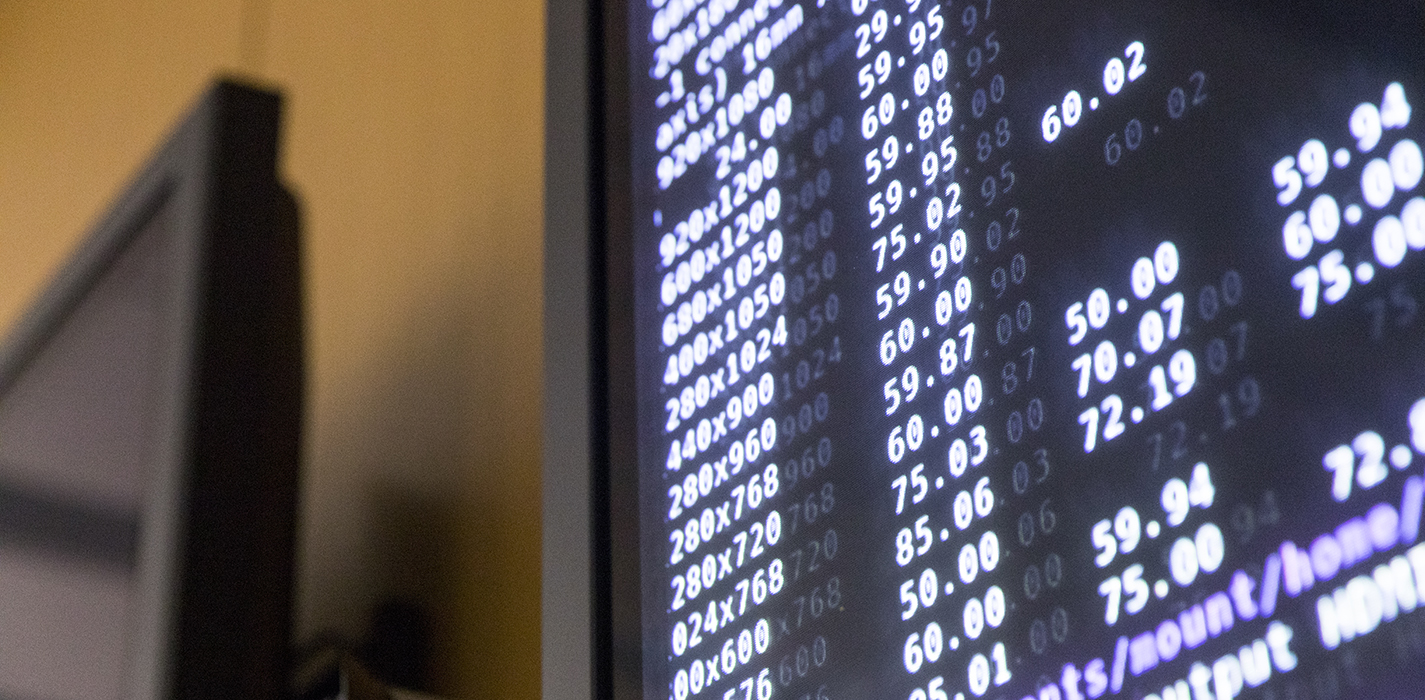Willamette University faculty joined the fight against COVID-19 — and so have campus computers.
In the interest of science and saving lives, 16 lab computers and thousands of other volunteer devices worldwide are donating computer power to assist scientists in understanding the structure of novel coronavirus proteins. The effort will find vulnerabilities in the proteins that can be exploited as targets for vaccines and medications.
Simulating the vast number of atoms to recreate a protein’s 3D structure — a process known as protein folding — requires a massive amount of computational power. While calculations of this scale are normally left to supercomputers, two distributed computing projects, Folding@Home and Rosetta@Home, are harnessing the power of ordinary people’s personal computers to assist with the work.
Once users download an app on their computer, researchers can use any time the computer is idle — such as when a user is on Facebook and waiting for a response — to run the calculations.
“These massive calculations normally would require months for a supercomputer to do, but now they can be done in days because of a worldwide computing network,” said Assistant Professor of Physics Daniel Borrero.
WITS has been running the apps nonstop since late March. By then, in-person classes moved online, leaving computer labs empty. Borrero pitched the idea to WITS of running the protein folding apps, figuring it would be a good use for the otherwise dormant devices. He’d used the apps before — they’ve been around for two decades and used by scientists at other universities to study cancer and other diseases — and WITS jumped at the idea, he said.
Jackie Barretta, vice president and chief information officer, said the university will keep the process going until in-person classes start because “we just really want to do our part.”
Willamette’s small effort also helped Folding@Home accidentally reach a major milestone in the history of computation. On March 25, the vast network of computers broke a long-sought after benchmark that translates to a speed roughly 10 million times faster than a personal computer and 10 times faster than the world’s fastest standalone supercomputer. The numbers have only continued to grow as more volunteers join the fight, said Borrero.
“It goes to show that when humanity comes together, we can achieve extraordinary things,” he said. “It’s especially cool that the record was broken by hundreds of thousands of people from all over the world, pooling together resources to fight a disease that threatens us all.”


